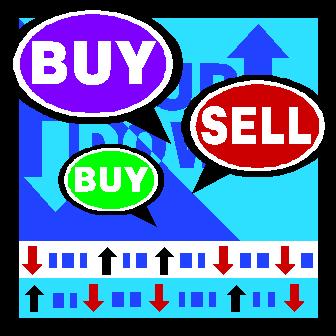| Home | About | Archives | RSS Feed |

The Independent Investor: Exchange-Traded Funds Catch On
 Exchange-traded funds (ETFs) assets have recently surpassed the $1 trillion mark as investors continue to discover these securities are a welcome alternative to both stocks and mutual funds. Adding $122 billion to this growing class of funds in 2010, investors and experts alike believe ETFs will continue to grow as markets become highly correlated in the years ahead.
Exchange-traded funds (ETFs) assets have recently surpassed the $1 trillion mark as investors continue to discover these securities are a welcome alternative to both stocks and mutual funds. Adding $122 billion to this growing class of funds in 2010, investors and experts alike believe ETFs will continue to grow as markets become highly correlated in the years ahead.
Readers are aware that I have written a number of columns on ETFs over the years. But for those new to the concept, I'll quote Wikinvest's definition of an ETF:
 An exchange-traded fund (ETF) is an investment product — similar to a mutual fund — that trades on a stock exchange. Most ETFs track major stock indices or industry sub-sectors, which allows investors to get exposure to either the entire market or specific sectors with a single purchase. Unlike a mutual fund, an ETF's holdings — the investments it makes — are always known (its components are simply the weighted components of the index it tracks). While mutual funds often aim to 'beat' the market or the sector they track, ETFs usually aim only to track the market and match its performance, good or bad. As a result, ETFs often charge lower fees than mutual funds, and are known as inexpensive ways for investors to invest in the market as a whole or specific subsectors. ETFs also have lower-expense ratios because they are not actively managed. In most cases, this results in lower management fees and lower turnover costs. An exchange-traded fund (ETF) is an investment product — similar to a mutual fund — that trades on a stock exchange. Most ETFs track major stock indices or industry sub-sectors, which allows investors to get exposure to either the entire market or specific sectors with a single purchase. Unlike a mutual fund, an ETF's holdings — the investments it makes — are always known (its components are simply the weighted components of the index it tracks). While mutual funds often aim to 'beat' the market or the sector they track, ETFs usually aim only to track the market and match its performance, good or bad. As a result, ETFs often charge lower fees than mutual funds, and are known as inexpensive ways for investors to invest in the market as a whole or specific subsectors. ETFs also have lower-expense ratios because they are not actively managed. In most cases, this results in lower management fees and lower turnover costs. |
Now given that they are cheaper, trade all day, (unlike mutual funds that trade once a day after the market close), and outperform mutual funds the majority of the time, why haven't they driven mutual funds out of business?
The answer is two-fold: commitment and self-control.
Some investors believe that they can outperform the market if they pick the right mutual fund manager. There are fund managers out there who consistently do that although the numbers are less than 25 percent of all mutual funds.
Although ETFs will generate the same returns as their underlying index, many investors are guilty of buying and selling ETFs at the wrong time. Emotions sometimes get in the way of objective investing. ETFs, given that they trade all day like stocks, are far easier to dump (or chase) when the markets suddenly turn against you while mutual funds charge a penalties for such short term trading. And unlike ETFs, they can only be purchased once a day after the stock market closes.
Nonetheless, experts expect the demand for ETFs will continue to grow. Financial giants such as Charles Schwab and TD Ameritrade have begun to offer their own ETFs and are offering investors incentives to switch their buying to their house brand by offering commission-free trades and undercutting competitors in the expense ratios area.
The recent proliferation of exchange-traded notes or ETNs that invest in commodities such as gold bullion, sugar, platinum and a host of other commodities have also attracted the interest of investors. Many of us have found a cheap, viable approach to investing (or speculating) in a field long closed to all but the best-heeled professionals. But buyers beware, ETNs are taxed differently then ETFs (even in tax–deferred accounts such as IRAs).
Nonetheless, ETNs have been so successful in attracting new money that there have been several articles criticizing ETNs for artificially inflating the price of commodities such as oil, and causing spikes in consumer stables like gasoline.
Finally, the fact that most stock markets have become highly correlated makes buying individual stocks or even mutual funds less efficient. If everything is going up together an ETF enables the investor to buy into sectors, countries, regions or even world indexes quickly. They allow the little guy to truly become a global investor, although how one performs requires that same old self-control and commitment that has been around for centuries. The more things change, the more they stay the same.
Bill Schmick is an independent investor with Berkshire Money Management. (See "About" for more information.) None of the information presented in any of these articles is intended to be and should not be construed as an endorsement of BMM or a solicitation to become a client of BMM. The reader should not assume that any strategies, or specific investments discussed are employed, bought, sold or held by BMM. Direct your inquiries to Bill at 1-888-232-6072 (toll free) or e-mail him at wschmick@fairpoint.net. Visit www.afewdollarsmore.com for more of Bill's insights.
| Tags: ETF, mutual funds |

